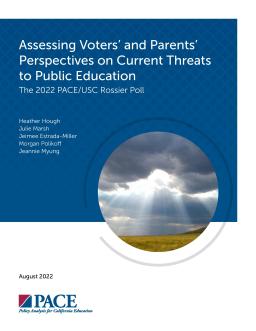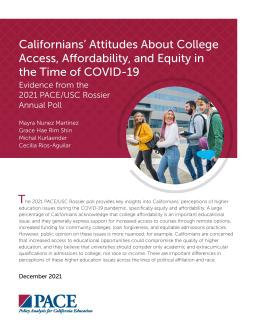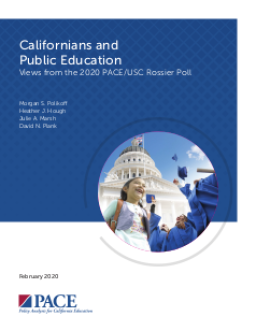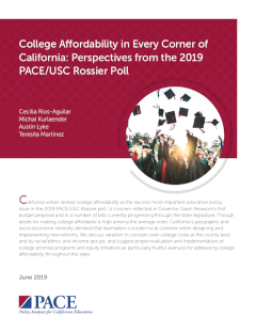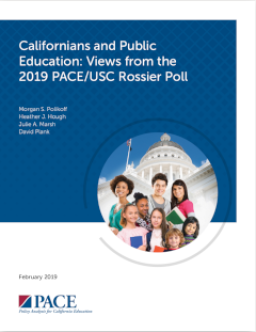Summary
The 2021-22 academic year in California was challenging for public education due to eight issues that threaten student learning, schools, and public education itself, including gun violence, declining enrollment, and long-term funding inadequacy. These issues also have a disproportionate impact on marginalized communities and highlight long-standing systemic inequities. In July 2022, PACE and USC Rossier School of Education conducted a poll of California voters to determine their views and priorities on public education.
Summary
Summary
In the run-up to 2020 elections, where do California voters stand on key education policy issues? This report examines findings and trends from the 2020 PACE/USC Rossier poll. Key findings include rising pessimism about California education and elected officials, continued concern about gun violence in schools and college affordability, and negative opinions about higher education. However, there is substantial support for increased spending, especially on teacher salaries.
Summary
College affordability was ranked as the second most important education policy issue in the 2019 PACE/USC Rossier poll. Governor Newsom’s budget proposal and several bills in the state legislature reflect this concern. The diverse geography and socioeconomic status in CA demand local context consideration for designing effective reforms. Variation in concern over college costs is discussed by county and income and racial/ethnic groups. Proper evaluation and implementation of college promise programs and equity initiatives are suggested as fruitful avenues for addressing college affordability.
